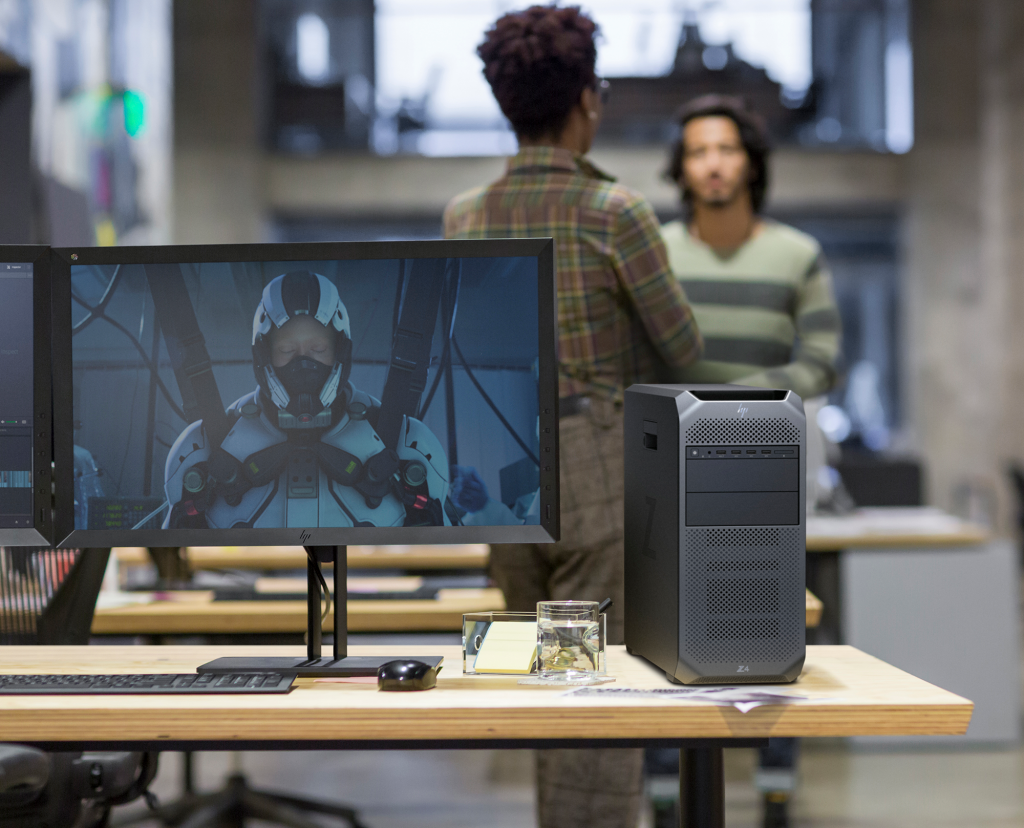The Return of the Desktop
Working from home during the pandemic has been one of the most significant shared experiences among millions of workers around the world over the past year. While everyone looks forward to a return to normalcy, many businesses and workers alike have found the upside to working remotely, particularly reduced time and expense on commuting to a physical office. Many companies have extended work-from-home policies well into 2021, while many workers have started relocating to areas they’d rather live given the opportunity to work remotely.

One of the most important but overlooked impacts of the remote-working trend is the reduced emphasis on mobility. As people have settled into a work-from-home routine, a lot of attention has turned to optimizing productive workspaces. For many, it’s less important to have a lightweight laptop that can go anywhere than it is to have the power and peripherals to conduct professional virtual meetings and to work productively in the cloud.
Compared to the kind of powerful and lightweight laptops needed for mobility, desktop workstations are surprisingly affordable, providing tremendous processing power while leaving plenty of budget for a large monitor, a good webcam, and a headset. The affordability of this approach appeals not only to remote workers, but to businesses looking to save costs across a fleet of machines for their workforce. In fact, desktops have advantages that are likely to feature in many return-to-the-office scenarios as well.
Planning for Flexible Work Options
One of the most critical factors in return-to-the-office planning is flexibility. Some workers will want to return to the office as soon as possible, while others may be reluctant to return as quickly, or may work fewer days in the office, particularly those with secondary health issues or with vulnerable family members. Companies facing empty offices and desks are already adjusting, shifting to flexible workspaces and office hotelling, in which workers aren’t assigned a fixed office that would be empty several days a week, but instead can arrange office space day-to-day wherever it’s available.
Productive offices will likely see a more efficient use of smaller spaces, accommodating workers flexibly as they need to be in the office to collaborate with peers, who otherwise work from home. Flexible spaces may utilize docking stations to connect mobile laptops to larger monitors and other peripherals, but added costs and security concerns will make desktops increasingly attractive, particularly as virtual desktop environments and cloud-based applications and data continue to mature.
The Attractions of Desktop Workstations
There are numerous factors that make desktops more attractive for those working from home, or hotelling at a flexible office workspace, including cost, power, security, and freedom.
Cost
The most obvious difference between laptops and desktops is the price. Compared to a laptop, a similarly configured desktop can cost as much as $1000 less, leaving plenty of savings for a large monitor, an ergonomic keyboard, and a pro webcam. That’s a lot of extra bang for the buck if you’re no longer attached to mobility and want to configure an optimal working space at home.
Power
Power has become an issue again with business computing particularly because of the processing demand of video conferencing in conjunction with applications and cloud syncs running in the background. People often associate powerful desktops with large tower PCs that take up a lot of space.
But desktops are getting much smaller, including mini towers and mini workstations that barely take up more space on your desk than a laptop, and all-in-ones that pack everything into the case of a large monitor. They come with greater configurability through added memory slots, dedicated graphics cards, and available ports. Spend some of your savings on added RAM or a better graphics card, and you can rapidly exceed the power of a laptop, with more efficient cooling so your machine doesn’t frequently sound like you’re inside an airplane waiting for takeoff.
Security
Are desktops more secure than laptops? In more ways than one. Obviously if you’re not taking your laptop with you, you’re less likely to lose your laptop to theft. But recent advancements in security, particularly HP’s Sure Suite of hardware-enforced security features, are readily available in HP’s Z series of desktops at lower pricing compared to laptops. Those security options scale for business fleets, with features that allow network admins to monitor security threats on endpoint devices far more effectively.
Freedom
While it may seem odd to think of a desktop fixed in place as providing any kind of freedom compared to a mobile laptop, the reality for many users is that mobility comes with its own constraints. If you’re used to taking your laptop with you everywhere you go, learning to contain your work to your dedicated workspace and leaving home without your computer can feel freeing—you don’t have to constantly keep a mental tab on your laptop, and you learn to compartmentalize your screen time more effectively. Many people are finding this also helps them be more productive, by creating a dedicated working environment and focusing their screen time more intentionally on completing tasks without distractions.
When It’s Time to Consider a Desktop
If you need a refresh on a tighter budget, if you’re no longer traveling regularly for work, or if you’re finding your laptop constantly running hot with video conferencing and cloud applications running in the background, desktops are worth considering—particularly those with hardware-enforced security features like the HP Z series of mini workstations.
If you plan on flexible workspaces in your office for team members mostly working from home, you may find that workstations for home and a few dedicated desktops at work for hotelling still come in under budget compared to a fleet of powerful laptops, and again, the Sure Suite system across those desktops will significantly improve your cybersecurity defenses.
If you’re not sure about the best combination of workstations to offer your team the greatest flexibility without compromising productivity, RTI can help. Contact our technology experts today!
Date Posted: 1/13/21
Date Last Updated: 9/29/23
By: RTI Marketing Team



